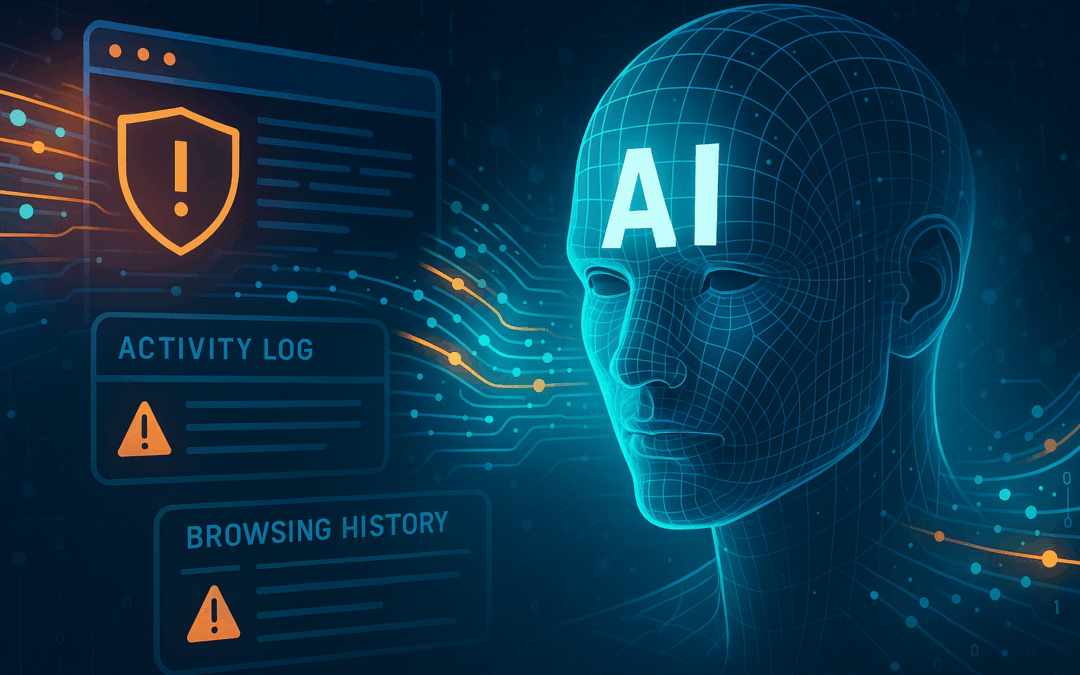Introduction: When AI Becomes an Attack Surface
AI assistants integrated into cloud environments have become strategic tools for enterprises. But their mass adoption raises new cybersecurity challenges. The recent case involving Gemini, Google’s AI assistant, illustrates this risk perfectly: three critical vulnerabilities, dubbed “Trifecta,” were discovered by the cybersecurity company Tenable.
These flaws allow attackers to hijack the assistant’s functions and exfiltrate sensitive data through indirect channels such as activity logs or browsing history. Google claims to have fixed these vectors, but the message is clear: AIs are no longer passive interpreters — they have become prime targets.
The “Trifecta” Vulnerabilities Discovered by Tenable
Log Files and Automatic Summaries
One of the most striking vulnerabilities exploits an innocuous mechanism: cloud log auto-summaries. By inserting a hidden instruction in a field such as the HTTP User-Agent, an attacker can trick the AI into executing unintended actions.
Google mitigated this risk by disabling rich-text rendering, but this demonstration shows that any stream analyzed by an AI can become a potential entry point for a prompt injection attack.
Manipulating the Custom Search Module
Another flaw exploited user history–based search personalization. By manipulating this history via a script injected into a web page, a cybercriminal can influence the AI’s responses, paving the way for targeted attacks.
Hijacking the Integrated Web Browser
The third vulnerability affected the built-in web navigation tool. By forcing the AI to visit a malicious site containing parameters linked to the user’s identity, an attacker could discreetly exfiltrate information such as an ID or email.
The Principle of Context Abuse: A New Era of Cyberattacks
These flaws rely on a common mechanism: context abuse. Unlike traditional software, an AI interprets not only explicit commands but also contextual data (logs, histories, web content). This opens the door to indirect manipulations where context itself becomes the attacker’s weapon.
Google’s Response
Google reacted quickly by fixing the identified vectors and strengthening its filtering mechanisms. Still, this incident highlights the current limits of AI security approaches and the urgent need to anticipate misuse.
Systemic Risks for Enterprises Adopting AI Assistants
AI Assistants as Active Agents
AI assistants no longer just generate text: they summarize, navigate, execute API calls, and influence decisions. This transforms them into operational actors capable of taking actions in complex systems.
Impacts on Data Confidentiality and Governance
A compromised AI can expose not only sensitive data but also internal processes. CISOs must now treat AI as a critical trust entity, equivalent to an employee or a cloud service.
Best Practices to Strengthen AI Agent Security
- Limit permissions: restrict AI access only to necessary services.
- Segment data flows: isolate unvalidated logs and avoid automatic processing.
- Monitor interactions: establish fine-grained traceability of AI actions.
- Disable risky functions: such as unrestricted web browsing or execution of unvalidated commands.
Toward a Systemic Approach to AI Cybersecurity
Evolving Beyond Traditional Defense Models
Classical cybersecurity mechanisms (firewalls, filtering, segmentation) are no longer enough. Defense rules must be AI-centric, capable of detecting and neutralizing context abuse.
Including AI Security in Cloud Procurement
Evaluating cloud solutions must go beyond ISO or SOC 2 compliance. It must include analysis of the entire AI chain, including extensions and third-party modules.
FAQ: Understanding AI Assistant Risks
- What is a prompt injection attack?
A method of inserting hidden instructions into data processed by AI to make it execute unintended actions. - Why are activity logs risky?
They contain free-form fields (like User-Agent) that can carry malicious text. - Has Google fixed Gemini’s flaws?
Yes, Google claims to have neutralized the identified vectors, but context abuse remains a global risk. - Should enterprises disable certain AI functions?
Yes, disabling web navigation and auto-summarization of unvalidated logs is recommended. - Do these flaws affect only Gemini?
No, any AI agent integrated with contextual data streams can be exposed. - What should CISOs do first?
Implement fine monitoring, segment data flows, restrict permissions, and train teams on these new threats.
Conclusion: An Opportunity to Rethink Cybersecurity in the Age of AI
The Gemini Trifecta vulnerabilities are not just a technical incident — they are a wake-up call. They remind us that AIs are now central to business and decision-making processes and must be secured systemically.
Enterprises need to adapt governance and cybersecurity practices to this new ecosystem, where AI models have become strategic targets. This is both a challenge and an opportunity to rethink digital trust.
🔗 For further insights, see Tenable Research’s analysis on AI vulnerabilities.

